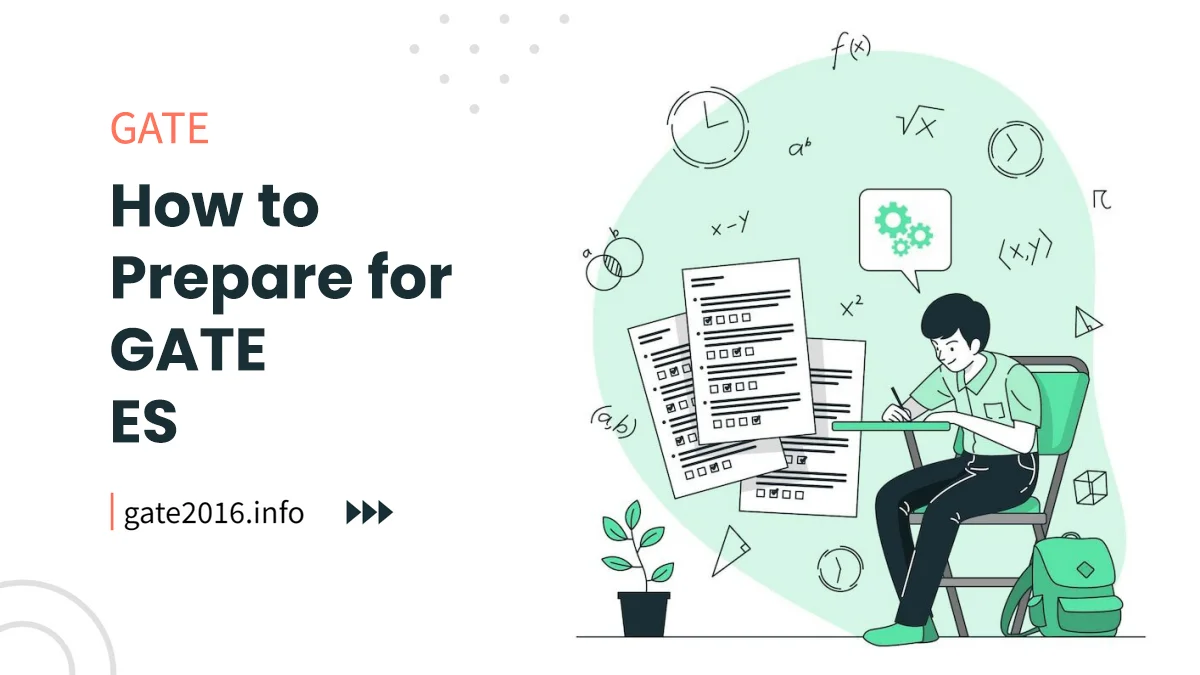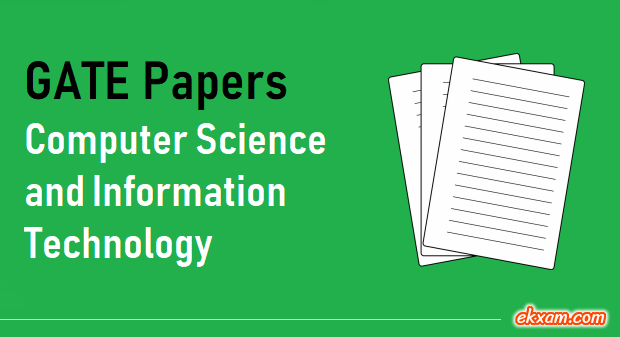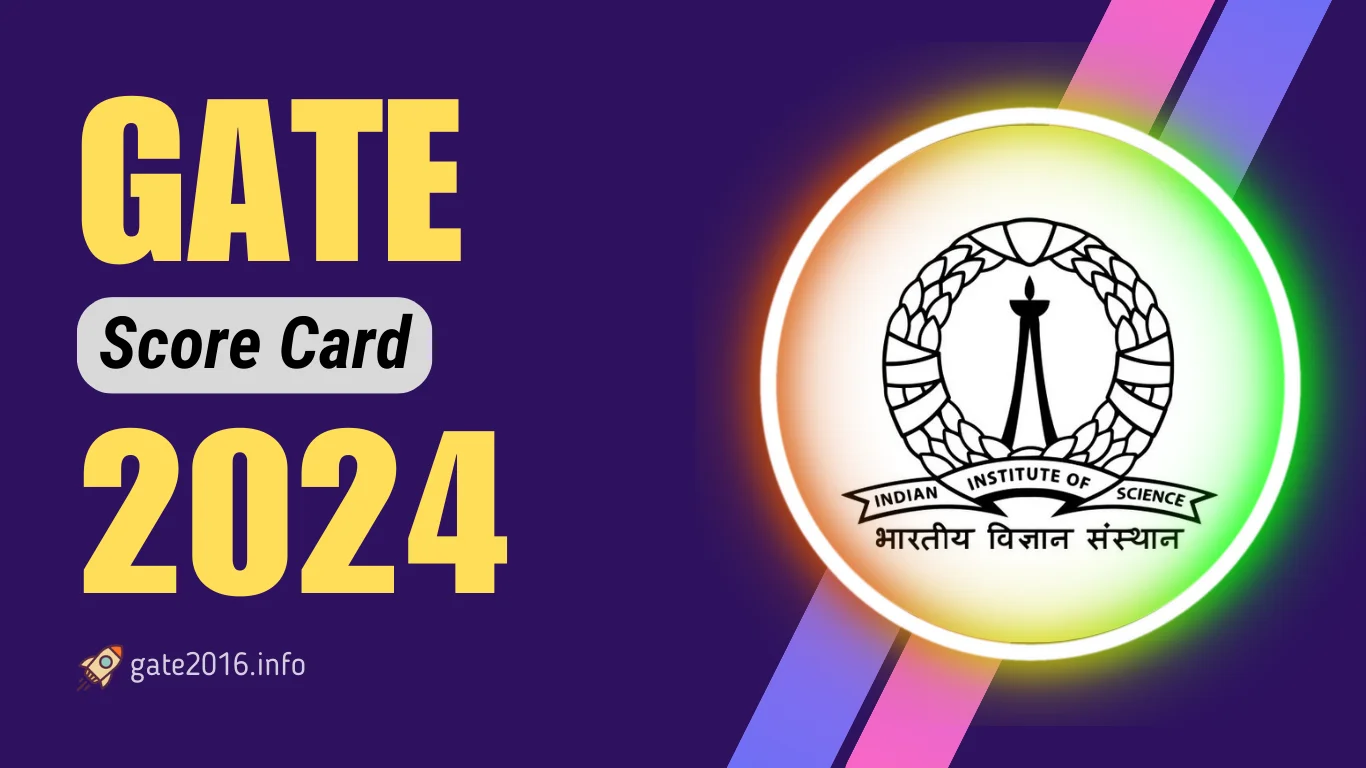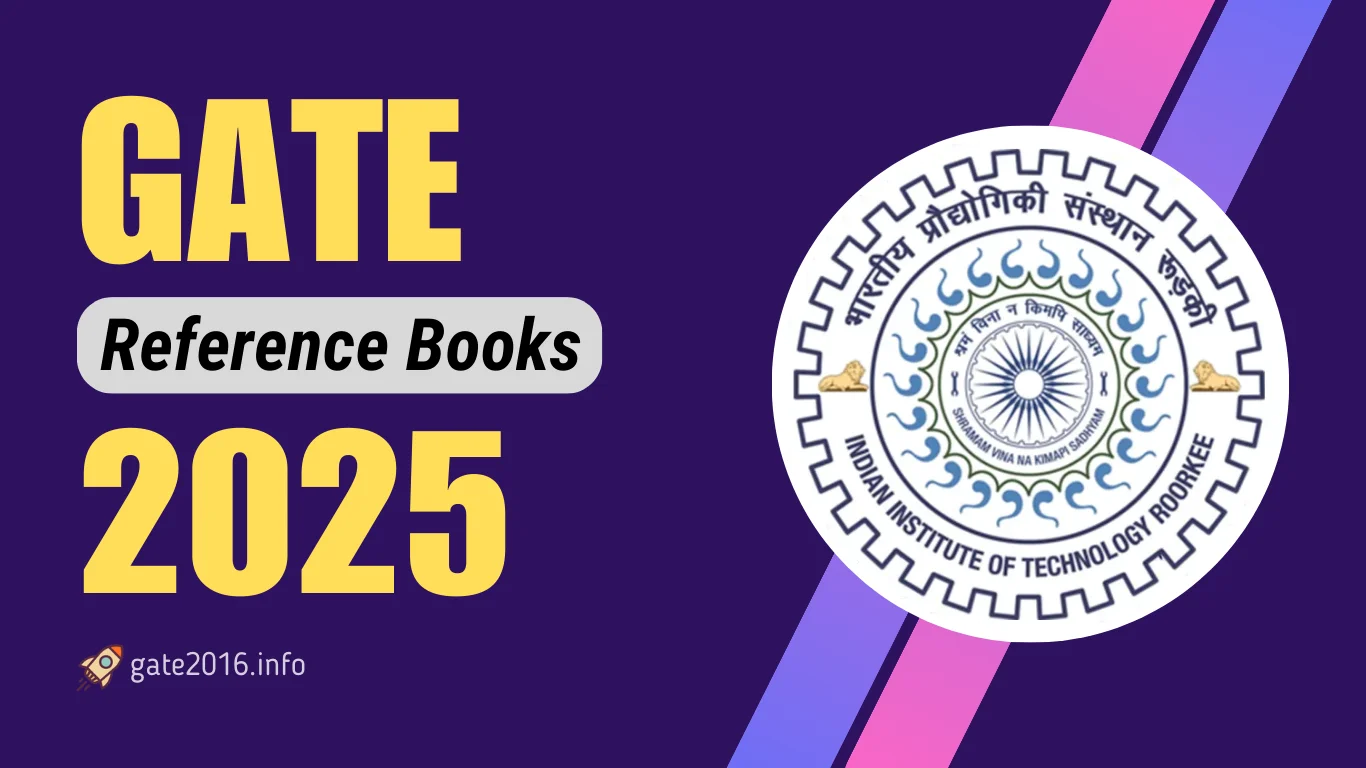Advertisements
Ratings

GATE 2024 ES Preparation – The Graduate Aptitude Test in Engineering (GATE) is a prestigious examination that paves the way for aspirants to pursue advanced studies and explore rewarding career opportunities in the field of Environmental Science and Engineering (ESE).
Thorough preparation is essential to excel in the GATE ESE exam.
This comprehensive guide presents effective strategies and step-by-step instructions to help you prepare comprehensively and achieve success in the exam.
Contents
- 1. Introduction to GATE ESE
- 2. Understanding the GATE ESE Syllabus
- 3. Creating a Comprehensive Study Plan
- 4. Selection of Relevant Study Materials
- 5. Grasping Fundamental Concepts
- 6. Solving Practical Problems
- 7. Reviewing Previous Years’ Question Papers
- 8. Taking Mock Tests
- 9. Effective Time Management Strategies
- 10. Implementing Revision Techniques
- 11. Staying Informed about Environmental Developments
- 12. Managing Exam Stress
- 13. Final Weeks’ Preparation Strategy
- 14. Approaching Exam Day with Confidence
- 15. Reflecting on the Exam and Planning Ahead
- Conclusion: Excelling in GATE Environmental Science and Engineering
- Additional Resources and References
- GATE Environmental Science and Engineering Guidance
- GATE Environmental Science and Engineering Preparation FAQs
- GATE Total Information & Guidance
1. Introduction to GATE ESE
GATE ESE serves as a prominent examination for individuals aspiring to specialize in environmental science and engineering.
An effective preparation plan is crucial to excel in the GATE ESE exam and contribute meaningfully to the field.
2. Understanding the GATE ESE Syllabus
To prepare effectively, it’s imperative to comprehend the comprehensive GATE ESE syllabus.
Let’s break down the syllabus into subjects and key topics:
Table 1: GATE ESE Syllabus Breakdown
| Subject | Key Topics |
|---|---|
| Environmental Chemistry | Environmental pollutants, Water quality parameters, Analytical techniques |
| Environmental Microbiology | Microorganisms in the environment, Microbial growth, Pathogens |
| Water and Wastewater Treatment | Principles of treatment, Coagulation and flocculation, Disinfection |
| Solid and Hazardous Waste Management | Solid waste characteristics, Waste disposal methods, E-waste |
| Air Pollution and Control | Air pollutants, Monitoring techniques, Air pollution control devices |
| Environmental Impact Assessment | EIA process, Stakeholder involvement, Mitigation measures |
| Global Environmental Issues and Sustainable Development | Climate change, Biodiversity conservation, Sustainable development |
| Laws and Regulations | Environmental legislations, International agreements, Environmental ethics |
3. Creating a Comprehensive Study Plan
Developing a well-structured study plan is the foundation of effective GATE ESE preparation.
Organize your study plan by allocating time to different subjects and topics based on their significance and complexity.
Table 2: Sample Study Plan
| Week | Subjects/Topics | Time Allocation |
|---|---|---|
| 1-2 | Environmental Chemistry | 10 hours/week |
| 3-4 | Environmental Microbiology | 12 hours/week |
| 5-6 | Water and Wastewater Treatment | 15 hours/week |
| 7-8 | Solid and Hazardous Waste Management | 10 hours/week |
| 9-10 | Air Pollution and Control | 12 hours/week |
| 11-12 | Environmental Impact Assessment | 8 hours/week |
| 13-14 | Global Environmental Issues | 8 hours/week |
| 15-16 | Laws and Regulations | 10 hours/week |
4. Selection of Relevant Study Materials
Choosing appropriate study materials is pivotal for comprehensive GATE ESE preparation.
Utilize a combination of textbooks, online resources, video lectures, and mock tests for a well-rounded approach.
Table 3: Recommended Study Resources
| Subject | Books | Online Resources |
|---|---|---|
| Environmental Chemistry | “Environmental Chemistry” by Stanley E. Manahan | NPTEL’s Environmental Chemistry courses |
| Environmental Microbiology | “Environmental Microbiology” by Ralph Mitchell | Coursera’s Environmental Microbiology courses |
| Water and Wastewater Treatment | “Principles of Water Treatment” by Kerry J. Howe | Khan Academy, Water Treatment Tutorials |
| Solid and Hazardous Waste Management | “Integrated Solid Waste Management” by George Tchobanoglous | NPTEL’s Solid Waste Management courses |
| Air Pollution and Control | “Air Pollution: Its Origin and Control” by Kenneth Wark | Coursera’s Air Pollution Control courses |
| Environmental Impact Assessment | “Introduction to Environmental Impact Assessment” by John Glasson | Khan Academy, EIA Process Tutorials |
| Global Environmental Issues | “Our Common Future” by World Commission on Environment and Development | NPTEL’s Sustainable Development courses |
| Laws and Regulations | Environmental Protection Act, 1986 (India) | Relevant websites for international agreements |
5. Grasping Fundamental Concepts
Building a strong foundation in core environmental science and engineering concepts is vital.
Focus on fundamental principles within each subject:
Table 4: Mastering Core Concepts
| Subject | Key Concepts |
|---|---|
| Environmental Chemistry | pH, BOD, COD, Environmental pollutants |
| Environmental Microbiology | Microbial processes, Pathogens in water |
| Water and Wastewater Treatment | Coagulation, Filtration, Disinfection |
| Solid and Hazardous Waste Management | Landfill design, Recycling methods, E-waste |
| Air Pollution and Control | Particulate matter, VOCs, Dispersion modeling |
| Environmental Impact Assessment | Scoping, Impact identification, Mitigation |
| Global Environmental Issues | Climate change, Biodiversity conservation |
| Laws and Regulations | Key environmental legislations, International agreements |
6. Solving Practical Problems
Balancing practical problem-solving skills with theoretical knowledge is crucial. Practice problems related to:
- Water and Wastewater Treatment: Designing treatment processes, calculating efficiency.
- Air Pollution and Control: Evaluating emission rates, designing air pollution control devices.
- Solid Waste Management: Assessing landfill capacity, analyzing waste composition.
7. Reviewing Previous Years’ Question Papers
Solving previous years’ question papers provides insights into question patterns, difficulty levels, and exam trends:
Table 5: Benefits of Solving Previous Years’ Papers
| Benefit | Description |
|---|---|
| Understand Question Types | Identify common question patterns and formats |
| Time Management | Practice completing the paper within time |
| Exam Pattern Familiarity | Get comfortable with GATE question patterns |
| Self-Assessment | Evaluate your preparation level and progress |
8. Taking Mock Tests
Taking mock tests under simulated exam conditions is crucial for building confidence and refining time management:
Table 6: Benefits of Taking Mock Tests
| Benefit | Description |
|---|---|
| Exam Simulation | Replicate the actual exam environment |
| Time Management Improvement | Enhance time allocation skills |
| Confidence Building | Boost your confidence before the real exam |
| Identifying Weak Areas | Pinpoint areas requiring further attention |
9. Effective Time Management Strategies
Effective time management during the exam is pivotal. Develop a strategy to allocate time to different sections:
Table 7: Time Management Strategy
| Section | Recommended Time Allocation |
|---|---|
| General Aptitude | 15 minutes |
| Verbal Ability | 10 minutes |
| Subject-specific Sections | 75 minutes each |
10. Implementing Revision Techniques
Regular revision is essential for retaining information. Utilize structured techniques to reinforce your understanding:
- Revision Schedule: Allocate time for revisiting key topics regularly.
- Concise Notes: Create summarized notes and mind maps for quick review.
11. Staying Informed about Environmental Developments
Staying current with the latest environmental advancements is vital:
- Follow Environmental News: Subscribe to reputable environmental news sources.
- Engage in Discussions: Participate in online forums and discussions to learn about emerging trends.
12. Managing Exam Stress
Effective stress management is crucial for maintaining focus during preparation:
- Relaxation Techniques: Practice mindfulness, meditation, and deep breathing.
- Balanced Routine: Incorporate relaxation, exercise, and mindfulness into your study routine.
13. Final Weeks’ Preparation Strategy
As the exam date approaches, intensify revision of key topics:
- Focused Revision: Allocate more time to challenging subjects.
- Additional Mock Tests: Simulate exam conditions with extra practice tests.
14. Approaching Exam Day with Confidence
On the exam day, stay composed:
- Read Instructions Carefully: Understand question patterns and instructions.
- Effective Time Allocation: Allocate time wisely to different sections.
15. Reflecting on the Exam and Planning Ahead
Evaluate your performance and plan your next steps:
- Performance Analysis: Identify strengths and areas for improvement.
- Future Planning: Decide whether to pursue advanced studies or career opportunities.
Conclusion: Excelling in GATE Environmental Science and Engineering
Preparing for GATE Environmental Science and Engineering demands dedication, meticulous planning, and a structured approach.
By following this comprehensive guide, aspirants can significantly enhance their chances of excelling in the examination and making valuable contributions to the field of environmental science and engineering.
Additional Resources and References
For additional resources and references, explore the recommended textbooks, online courses, technical journals, and practice papers mentioned in this guide.
These resources will further enhance your understanding and preparation for the GATE ESE exam.
GATE Environmental Science and Engineering Guidance
- How to Prepare for GATE Environmental Science and Engineering: A Comprehensive Guide
- GATE ES Previous Year Solved Papers – (2023-2021)
- GATE ES Syllabus 2025: Environmental Science & Engineering
GATE Environmental Science and Engineering Preparation FAQs
What is GATE Environmental Science and Engineering (ES)?
GATE ES is an examination conducted by the Indian Institute of Technology (IIT) for admission into postgraduate programs in Environmental Science and Engineering and related fields.
It assesses candidates' knowledge and understanding of environmental science, engineering, and related concepts and serves as a gateway to higher education and career opportunities in these areas.
What are the important subjects to focus on for GATE Environmental Science and Engineering preparation?
Key subjects to focus on include environmental chemistry, water and wastewater treatment, air pollution control, solid waste management, environmental impact assessment, and environmental laws and regulations.
Refer to the official GATE syllabus for Environmental Science and Engineering to ensure comprehensive coverage.
How should I prepare for the GATE ES exam?
Effective preparation involves creating a study plan based on the GATE syllabus. Use standard textbooks, reference materials, and online resources for each subject.
Practice solving previous years' question papers and mock tests to become familiar with the exam pattern and improve your problem-solving skills. Additionally, stay updated with current environmental issues and developments.
Are there any recommended books or resources for GATE Environmental Science and Engineering preparation?
Yes, some recommended books and resources include:
- 'Environmental Engineering: Principles and Practice' by Richard O. Mines Jr. and Laura W. Lackey
- 'Environmental Chemistry' by Stanley E. Manahan
- 'Water and Wastewater Engineering' by Mackenzie L. Davis and David A. Cornwell
- 'Air Pollution Control: A Design Approach' by C. David Cooper and F. C. Alley
- Online courses and lecture videos from reputable institutions and platforms like Coursera and edX.
What is the exam pattern for GATE Environmental Science and Engineering, and how should I approach it?
GATE ES typically consists of multiple-choice questions, multiple-select questions, and numerical answer type questions.
Questions cover various aspects of environmental science and engineering, including theory and practical applications.
Start by answering questions you are confident about and manage your time efficiently. For numerical answer type questions, ensure precision in your answers.
A strong understanding of environmental concepts, laws, and engineering principles is essential for success in the exam.
Recent Posts
- AAI Through GATE 2024 – JE (Junior Executive)
- M Tech and MS Programs Through GATE and GRE: Navigating Postgraduate Options
- Job Opportunities After GATE 2024 in India: What You Didn’t Know!
- BSPHCL Through GATE 2024 – 40 AEE
Related Tags
How to prepare for gate environmental science and engineering pdf 2024, How to prepare for gate environmental science and engineering quora 2024, gate environmental science and engineering study material pdf 2024, gate environmental science and engineering book pdf 2024, gate environmental science and engineering notes 2024, gate environmental science and engineering previous year question papers 2024, gate environmental science and engineering question paper 2024, gate environmental science and engineering syllabus 2024
| GATE (Reasoning & Aptitude & Maths) Books |
| GATE Guide Books |
GATE Total Information & Guidance
Click below given links to get further information.






